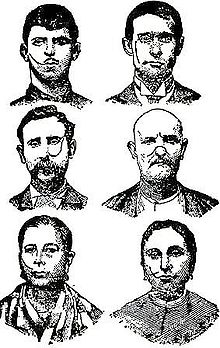No Corruption or Complete Corruption

This past weekend, while enjoying an after-work apertivo, I found myself in deep conversation with IDLO security interns analogizing South Sudan to Naples, Italy. The nexus was this: both governments are heavily influenced—if not completely controlled—by a corrupt organization. In Naples’ case, the Camorra, in South Sudan’s, the SPLA. Both the Camorra and the SPLA are metonyms for the government, and native Neapolitans refer to the Camorra as the “System.”
To provide a brief history, Naples is known not only as the birthplace of pizza, but also of organized crime—the Camorra emerged a full century before the Sicilian mafia. What originally began as smuggling cigarettes and engaging in petty crime has now escalated to a highly organized system of drug piazzas, which, if big enough, can allegedly net up to €1.5 million in one week. As observed in a BBC documentary on the Camorra, “It used to be that the Cammorista would knock on the politician’s door, now the politician comes to the Camorrista.” Even the current mayor of Naples, Luigi de Magistris, a former Camorra prosecutor, and the Italian president, Giorgio Napolitano (translation: from Naples), are allegedly involved with the Camorra, particularly in regards to illegal use of public funds.
The government of South Sudan, on the other hand, is comprised almost entirely of former rebels. The SPLA (Sudan People’s Liberation Army) was founded by guerilla soldiers launching offensives in Equatoria, Africa beginning in the mid-1980s, the majority of which were against pro-government militias. Once southern Sudan gained autonomy, the distinguished general of the SPLA, Domenic Dim Deng, took power, and now, another SPLA veteran, Salva Kiir Mayardit, fills the position of President and Commander-In-Chief in the newly independent South Sudan. Thus, the very perpetrators of embezzlement, fraud, crimes against humanity, war crimes, etc. are the primary political players in the new government.
Both the Camorra and the SPLA seem to share one overwhelming quality: their interest in anything that makes money—legal, or illegal. Additionally, just as clans within the Camorra fight on a regular basis, South Sudan is plagued by conflicts between tribes, often characterized by ethnic differences instilled by former imperialist rulers. Just as the SPLA became the government, the Camorra eventually began creating its own companies, effectively making more money by monopolizing Neapolitan industries, while simultaneously lowering punative risk and appearing more legitimate. Both the Camorra and the SPLA have essentially taken the place of the state and offer the same services as the state.
Of course, there are major distinctions between corruption in Naples and corruption in South Sudan. In the same documentary on the Camorra, a juvenile doing time for a Camorra-related offense commented on the motivation for becoming involved with the “System”: “It’s because it’s seen as a great way of life. I mean you don’t commit crimes because you need food on the table. You’re not in Africa here.” However, it would seem in both cases, the object is not to make money to survive, but to make an exorbitant amount of money through the perpetuation of crime.
Yet, some would argue that Naples and South Sudan would crumble but for the existence of these corrupt forces. Although the Camorra is responsible for the majority of crime in Naples, they are also responsible for the swift implementation of justice, keeping the peace, and trash collection. In South Sudan, the SPLA is the government and the only foundation upon which the nation has an opportunity to develop. Chipping away at either system could pose a threat to the functioning of society as a whole. Thus, the maxim becomes: no corruption or complete corruption.


